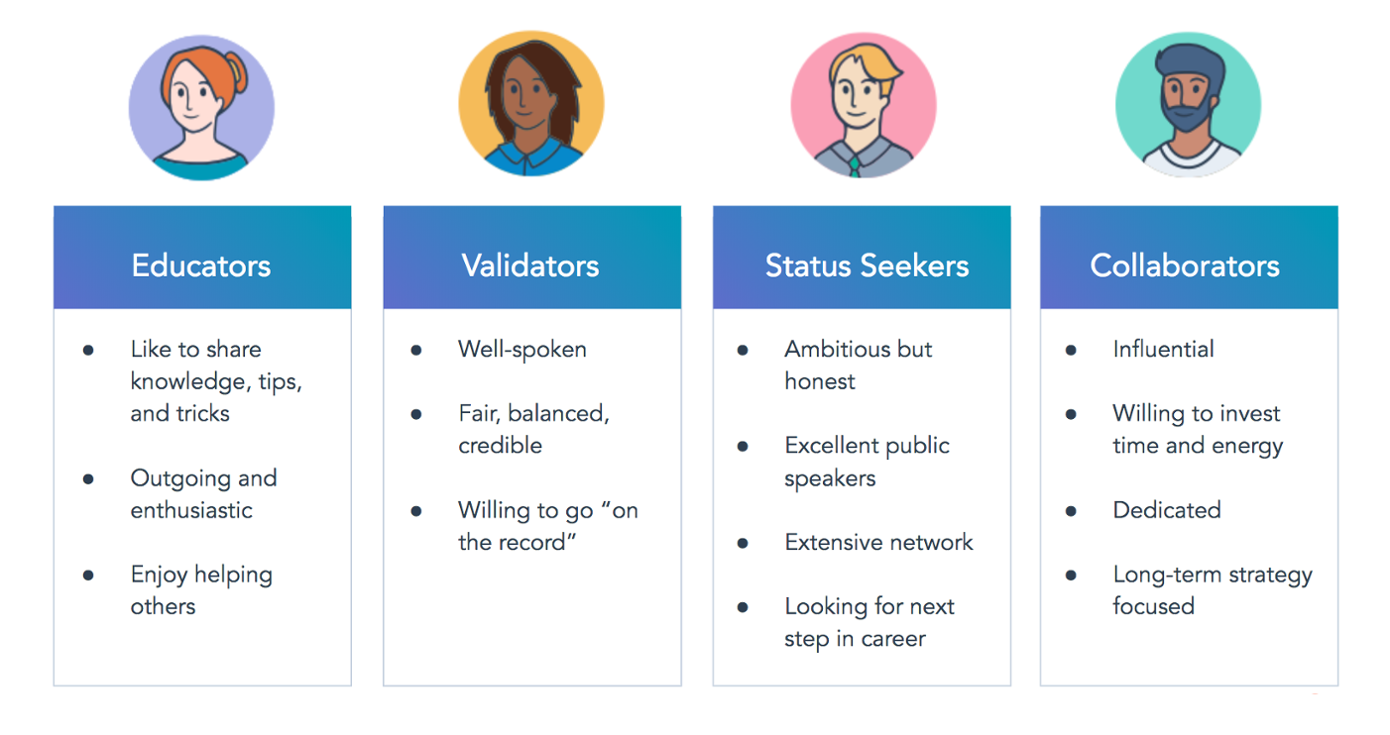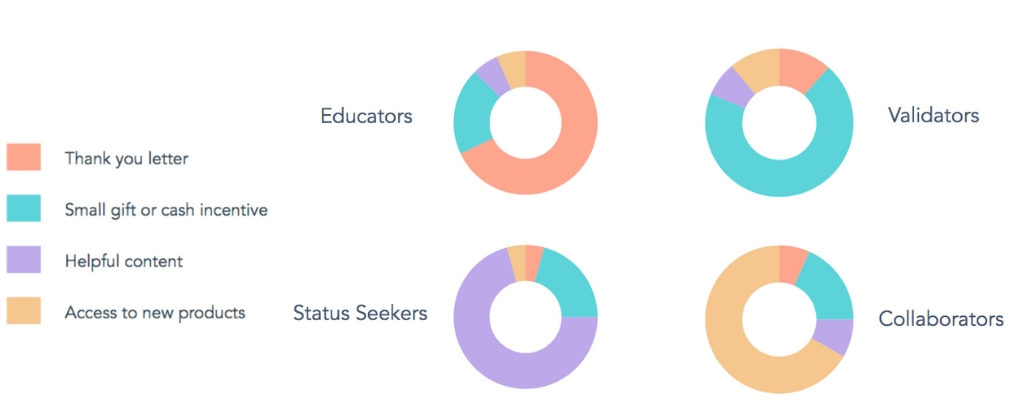Topics:
Inbound MarketingSubscribe now and get the latest podcast releases delivered straight to your inbox.
[NEW RESEARCH] What’s the Future for Consumer Advocacy? Key Takeaways from HubSpot’s Report

By Iris Hearn
Jan 11, 2019
![[NEW RESEARCH] What’s the Future for Consumer Advocacy? Key Takeaways from HubSpot’s Report](https://www.impactplus.com/hs-fs/hubfs/shutterstock_1028925001.jpg?width=768&height=400&name=shutterstock_1028925001.jpg)
This week, HubSpot Research released a new report exploring customer advocacy. The report details what makes an effective customer advocacy campaign, and why so many advocacy tactics fail.
Using both his own experiment and the findings of recent studies done on customer advocacy, HubSpot’s Carl Pieri details the different types of advocates (and how to determine which yours might be).
Here are the most important takeaways from the report:
Customer Advocacy Strategies Aren’t One-Size Fits All
The report digs into the four types of advocates:
- Educators
- Validators
- Status Seekers
- Collaborators.
Each type has different values, motivations for advocating your brand, and will be receptive to different incentives when participating in an advocacy program.

In fact, when Pieri ran his own customer advocacy experiment, his survey found that the type of incentive participants preferred was heavily dependent on their personality type:

For this reason, the incentives scheme that might work for one company will not necessarily have the desired effects for another.
It’s important to tailor your advocacy program to your customers. A good way to determine which type yours would be is to ask them how they’d be interested in participating in an advocacy program, and match their response to their personality type.
As with any marketing strategy, the data will tell you if you’re on the right track with your strategy or not, and you can adapt your approach over time based on what’s working for your base.
Programs Must Benefit the Customer First
While it may seem obvious that a customer advocacy program should be designed to be customer-first, the report explains that this is one of the most common pitfalls of advocacy programs.
Too many companies approach customer advocacy as a business transaction (ex. they give a review, you provide them with an Amazon gift card).
This might work in the short term, but if you’re trying to create a loyal army of brand advocates, you won’t see lasting results from these kinds of efforts.
The hallmark of a great advocacy program is when the customer feels they’re getting more out of the program than the brand is. By creating opportunities within your advocacy program for customers to develop personally and professionally, you’ll create a program in which your customers actually want to participate.
The report also encourages companies to embrace personalization to create unique experiences for customers who participate in the program.
Monetary Rewards Aren’t the Best Fit for Long-Term Solutions
Monetary rewards (such as the Amazon gift card in the example above) are not the best approach if you’re looking to attract high-quality brand advocates.
The report states that the measure of success isn’t just compliance with the program, but the self-directed advocacy behaviors your participants take.
Will you risk having less participants without a monetary incentive? Absolutely.
However, the report states that a smaller, more engaged community is much better for your program. This will give you more data on what your high-quality brand advocates want out of your advocacy program, and put you on the right track to engage more just like them.
A Successful Advocacy Program Requires Structure & Clear Goals
Another common struggle companies face with advocacy programs is determining ROI. Because advocacy can be difficult to measure, it’s important to set clear, SMART goals for your program beforehand so you’re able to track progress, and results, over time.
The report recommends that programs set goals based on 2 factors:
-
Business Goals: How do you want the program to impact your business? Whether it’s reviews, references, or sales conversations with referral prospects, set a numerical goal and the timeframe you hope to reach the number by. That way, you can see if your program is on track, or adjustments need to be made to hit the goal.
-
Advocacy Goals: This goal measures how successful your advocates view the program to be. This is an important goal to set and monitor, because if your advocates aren’t seeing the value, it’s unlikely you’ll hit your business goals for the program. This goal can be as simple as a periodic NPS score, and will reinforce the idea of keeping this program focused on the customer's needs first.
Why Marketers Need to Pay Attention to Customer Advocacy
Word of mouth has always been one of the most effective marketing strategies, and with the popularity of review sites like Yelp and Clutch, it’s easier than ever for prospects to see what a typical customer experience is like.
We know a salesperson will detail all the great benefits of their product or service - but it is so much more meaningful when this information comes from a satisfied customer.
Advocacy programs can help generate these organic word-of-mouth interactions that help prospects make purchasing decisions. When executed correctly, you can create a loyal following that is mutually beneficial for both your customers and your bottom line.
Free Assessment: